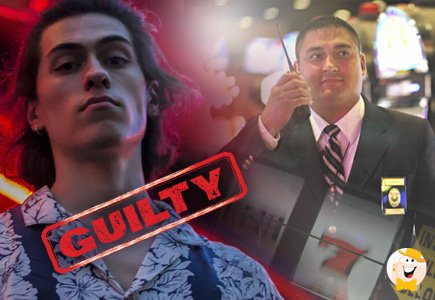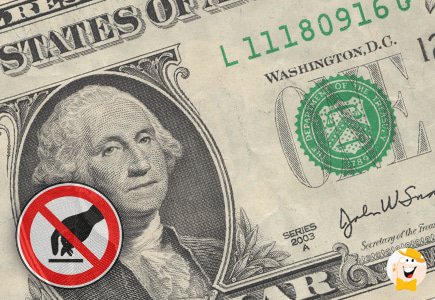
It had been a month, or so, since Maria’s last visit to the casino. It seemed like she would always take longer to return after a loss. In fact, she probably wouldn’t have went back on this particular Saturday except, for whatever reason, the Free Play offer was double the usual and she had some entries for a, “Win a Car,” drawing.
She set a budget of $300, as well as $25 for food/drink/tips, and ventured out. Her Free Play added another $50 to her effective budget, and she was glad to have it. She had lost her entire $300 budgeted pretty quickly the previous trip, as well as another $200 on top of that she had grabbed from the ATM.
It wasn’t such an amount of money that it hurt her financially. However, she did find herself particularly annoyed to discover that, between bank fees and ATM fees, she had paid a total of $9.50 for $200 of her own money. Not one to leave such a thing to chance again, she opted to leave all of her plastic at home.
While she didn’t have any big wins, three hours after entering the casino, she still had $100 of her gambling budget left in the form of a $101.62 ticket on the machine. She thought about cashing out, but decided to go for a big win instead.
She originally wanted to hit the $3/Max Quick Hit PRO, one of her favorite machines, but they were all taken. Not finding anything to her liking on the main floor, and since she was going for a sizable win, “Recover or go home,” anyway, she made her way to the high limit room.

Sitting down at a $5/$10/$15 Quick Hits Platinum machine, she decided just to bet the $5, even though that would disqualify her from the top progressive. She reasoned that, even though she wanted a big win, she didn’t want to get handed her walking papers in as few as six spins, either. Hitting Free Games almost immediately, and holding out hope that she would pick the “Holy Grail,” two boxes with 20 Free Games at 3x pays as well as one WILD 5 extra Free Games box, she selected her spots with deliberation, hoping for the best.
Unfortunately, she found herself staring down only seven Free Games with 2x Pays after selecting four boxes. She recalled that sometimes you would do pretty well on a penny game, as you were playing thirty lines, but this was a five line game. Ultimately, the Free Games would result in a total win of only $45.
Eventually, she lost that win as well as the original hundred. She managed to hit four Scattered Quick Hit Platinum symbols a few times, but those wins were only meaningful enough to keep her going for a few spins. Maria hadn’t paid much attention to her credits after the free games, and found herself somewhat surprised when she hit the “Repeat Spin,” button only for nothing to happen.
She still had the $1.62 on the machine but decided; there’s not much I can do with that, do I want to hunt down another machine just to make a few really small bets? She also considered cashing out the ticket, but would ultimately decide that taking a dollar-something ticket to the redemption machine would be not only somewhat embarrassing but also not worth potentially waiting in line for.
She made the deliberate decision just to leave the credits on the machine and call it a day.
---
Jake made his way into the casino as he did three or four times every week. He walked the circuit the same way he normally would, an avid Video Poker player, he understood how must-hit Progressives worked and would always start by checking the high-limit room for a good opportunity on a major or minor jackpot.
He played for points and mail and enjoyed a small advantage on his action, given those elements, drawings and other comps. Though he would occasionally (usually after a Royal or Four Deuces) toss $100 in a dollar machine with the same return percentage, he typically put in most of his action at the quarter denomination.
After checking the high-limit must-hits, the glowing cash out button of the Quick Hits Platinum machine caught his eye. It looks like my first hand is a freeroll today, he thought, as he cashed out the $1.62 ticket.
The day was otherwise uneventful, Jake put in his, ‘Normal,’ amount of coin-in, or something close to it, and left.
He would receive an unwanted surprise the following day, a trip to the backroom to discuss the $1.62 he had, “Stolen,” the previous day.
His defense was pretty simple, “I had no idea you couldn’t take that. It seemed pretty clear that whoever left that behind didn’t want it because it’s not enough to make a bet. People do that all of the time.”
Neither the casino security representative nor the State Police officer would hear any of it. “The fact is,” the police officer maintained, “That you knowingly stole that money even though it didn’t belong to you.”
Jake was shocked and dismayed that he was even having this conversation over less money than it would take to buy a small McDonald’s coffee. “Look, this is silly,” he reasoned, “If you want the $1.62 back, I’ve got it right here. How’s $2 and you guys can keep the change?”

To his greater surprise, Jake was instead issued a citation under the following law.
Specifically:
(c) To claim, collect, or take, or attempt to claim, collect, or take, money or anything of value in or from a limited gaming activity with intent to defraud and without having made a wager contingent thereon, or to claim, collect, or take an amount greater than the amount won;
Reading it, Jake looked up and incredulously demanded, “Attempt to defraud? To defraud who? The person who decided to leave the money behind? Where are they? I’ll give them the $1.62.”
The casino representative would go on to inform Jake that such was not how the law works and that Jake had defrauded the casino itself as the abandoned credits were the rightful property of the casino.
Jake demanded, “How is the casino not stealing the credits?”
The police officer did not give Jake an answer to that question, but rather informed him that he was to leave the property immediately and would be notified of the date and time of his hearing before the Magistrate if he wished to plead, “Not Guilty,” to the allegations against him.
Jake would go on to plead, ‘Not Guilty,’ and present essentially the same arguments at his hearing. Addressing him in a dismissive tone, and only half listening, to begin with, the judge laid down, “You clearly cashed out that ticket with the intent to steal it and defraud the casino of money. You took the ticket to another machine, inserted it, and played it as if it were your own. You are guilty under this statute.”
Perhaps more surprising than the decision itself was the fine, in excess of $400 for the illegal taking of $1.62, that Jake would have been more than happy to pay back. Jake also would be handed down the privilege of spending 24 hours, over six days, picking up trash from the side of the highway.
---
The above is a work of fiction, of course, but there have been several stories to come out of the State of Colorado, such as the one highlighted in this Fox Denver investigation.
Essentially, there is a law in that state, exclusive to casinos, that makes it a crime to take (or play) any money from the casino that has not been won or did not belong to the person, to begin with. The state clearly prefers a ridiculously liberal interpretation of the law, for a finding of guilt, and many players who have no intention to defraud or deceive have found themselves on the wrong end of this statute.
In terms of numbers, over nine hundred individuals have been charged under some aspect of the overall statute within the last five years. Specifically, 930, which works out to 186 charges per year.
It should also be mentioned that a wide variety of acts falls under the purview of the overall statute. For example, past posting at Roulette (making a bet after the result is known, or adding to it) would apparently run afoul of the law. Obviously, if someone is found to be past posting, and there is video graphic evidence that indicates clear deliberation, then that person should face prosecution. Arguably, the charges should be even more stringent for something like that. It would be a straight up felony, for instance, in Nevada.
Unfortunately, the casinos seem required (or all but) to aid the State Gaming Commission and police in the enforcement of these laws, even if those laws happen to catch innocent people in the crosshairs.
There may be a few things that this law is designed to do, even though the law goes WAY over what should be the scope of its intent. Let’s look at those (possibly useful) elements and determine whether or not this law, as worded, is necessary to accomplish those means:
1.) Get Rid of, ‘Buffalo Hunters.'
There is a term amongst people who visit casinos a bunch, particularly AP’s, and that term is, “Buffalo Hunters.” I’ll provide what I think is an adequate definition:
Buffalo Hunter: An individual who scours the casino floor for no purpose other than to look for abandoned slot credits and/or tickets which he then collects for the purpose of either cashing or attempting to win something big after collecting enough to make a sizable wager.
Technically, “Buffalo Hunting,” could either be thought of as an advantage play or outright theft, it’s really your choice. The only aspect that makes me stop short of calling it, “Theft,” is that Buffalo Hunters are not necessarily looking to take other than that which was deliberately left behind. Many such people, as a matter of rule, will, “Camp Out,” on a certain machine that has $X.XX, or more, on it and wait some arbitrary amount of time to see if the person comes back.
Certainly, in states where it is legal to take abandoned credits, if I happen to notice more than $5, or so, on a Video Poker machine (and am going to be playing Video Poker anyway). I will either cash out the ticket and set it to the side, or play the machine located next to that one. If the person doesn’t come back in my arbitrary amount of time, which is usually a half hour, (or so) then I will regard the ticket as abandoned and go ahead and add it to my machine. Obviously, if after that the person were to come back and say, “Hey, I left ten bucks on that machine,” I would give it to them immediately.
Obviously, this is just finding credits in the course and scope of playing. When it comes to someone being a, “Buffalo Hunter,” (also known as, ‘Sweeper,’ or, ‘Scavenger’), we’re talking about someone who has no intention of playing any machine, or might play, after collecting a big enough total of abandoned monies.
When it comes to actual (pure) Buffalo Hunters, it’s perfectly reasonable that the casino should want to rid itself of those types of people. However, no law as stringent as this one is required to do that. The casino could simply ask the patron to leave and approach the patron with a trespass order informing the Scavenger that he/she is hereby banned for life. If the person returns after that, whether scouring the floor or not, then the result would be a citation for Defiant/Criminal Trespass.
Most, if not all, jurisdictions have a criminal trespass law or equivalent.
Furthermore, it would also be well-advised for a casino to take a look at the person’s activities before rendering a final decision on whether or not to permanently ban someone. Occasionally, a player will simply lose a lot of money (often quickly) and will then scour the floor hoping to at least get to take one more shot. While that sort of behavior is certainly inappropriate, like a casino, I do not want to ban a person who loses a ton of money for life! I specifically want them to come back, so I would just call and tell them they are welcome, but please don’t Buffalo Hunt anymore.

The point is that the casino does not need a law like this to severely punish somebody for doing something once.
2.) Protect the Money of Other Players
It’s always going to be the claim of anyone who levies a law such as this that the law is in place to protect people. In most cases, such as this one, that claim is complete and total malarkey.
The first thing is: People are very rarely actually reunited with their money. In fact, for that to have any chance of happening, I strongly suspect that the person in question would have to approach security and make the claim that someone stole their ticket. Absent that, I seriously doubt that the casino is making a concerted effort to identify someone who left a $0.47 ticket behind and to reunite them with that money.
Secondly, as discussed, many people leave small amounts in the machine intentionally. The people will simply continue mashing the button and, when it no longer causes the screen to do anything, call it a loss and walk away. Some machines now come with a feature called, “Wager Saver”. If the player hits the spin button and there are insufficient credits, then the player will be given the option to either spin a wheel for a chance at receiving (relative to the number of credits in the machine) a spin at the previous bet amount, otherwise, cash out.
In short, this is something that the law could theoretically exist to do, but in the vast majority of cases, it only does it in theory.
---
As far as the State/County/Municipality is concerned, what these laws really accomplish is making money by way of fines. That’s why they would even bother to prosecute a player over an amount as small as $2, because such prosecution is a revenue generator for the jurisdictions in question. That’s also why it is so difficult to defend successfully against any charges, findings of innocence make no money for the jurisdiction.

Or, do they?
Arguments Against the Law
There are a number of reasons that the specific section of the statute is nonsense, and we have certainly addressed a few of them. However, the law is not just bad for the players, but it is arguably almost always bad for the casino and is often bad for the state. Here’s how:
1.) The Casino Actually Loses Money
The first thing that one must understand when it comes to the inadvertent (or intentional, in small amounts) collection of abandoned credits is that the casino would make more money by not bothering with those situations. For example, if a player found $5 and the player were then to be prosecuted under this statute, in addition to the fines and community service, the player gets banned from all casinos in the state for a year.
All of them.
Even if we assume that the casino would always get that $5, when you look at something like a 10% slot hold, that means that anything over $50 coin-in by a player would result in an expected win of greater than $5 for the casino. Virtually all casino patrons will play that amount of money (and almost always more) in a single visit, even more so in a year. You’re talking about 25 spins on a slot machine with a $2 bet, as long as the player plays about two total minutes that will happen.
2.) The State (Probably) Loses Money
The first thing that we should look at is the division of casino revenues.
Which states:
The gaming tax is levied on casinos’ adjusted gross proceeds, defined as the amount of money collected from gamblers minus the amount paid to gamblers in winnings. For each month of operation, casinos remit gaming taxes to the Division of Gaming within the Department of Revenue by the 15th day of the following month.
Simply stated: Revenues.
The revenues based on Adjusted Gross Proceeds are as follows for taxation purposes:
Casino Adjusted Gross Proceeds
Tax Rate
Up to $2,000,000---0.25%
$2,000,001 to $5,000,000---2%
$5,000,001 to $8,000,000---9%
$8,000,001 to $10,000,000---11%
$10,000,001 to $13,000,000---16%
$13,000,001 and over---20%
Interestingly, Colorado state law prohibits the distribution of figures for individual casinos, so what that means is that we don’t know what the total tax rates are by the casino.
What we do know is that, in the first four months of this Fiscal Year, there has been a total in Adjusted Gross Proceeds (read: revenues).
Of 252.7 million dollars in the state.
According to this site.
There are, “Nearly forty,” casinos in Colorado. I don’t see why forty is such a great number as to require an estimate, but it is what it is. Let’s call it forty.
Therefore, in four months, the average casino has enjoyed 252.7/40 = 6.3175 Million dollars in total revenues. If we call them all equal (which they certainly aren’t) then the tax proceeds are as follows:
(2000000 * .0025 * 40) = $200,000
(3000000 * .02 * 40) = $2,400,000
(1317500 * 40 * .09) = $4,743,000
For a total of $7,343,000 in revenues thus far.
Again, using the mean Adjusted Gross Revenues is the easiest way to go, so we know that all revenues (based on mean) from here on out will be taxed at 9%, or greater.
With a statewide average slot hold of 7.35% (all denominations considered) what we find is that even if we assume the total fines for booting someone out are $500 (it’s a little lower) that it would take:
(x * .0735 * .09) = 500
$75,585.79 = x coin-in to result in the state seeing $500 in total tax revenues.
While that sounds like a good bit of coin-in, it’s actually not. For example, on a $2 Max Bet machine, at 800 spins per hour:
75585.79/2/800 = 47.24
Thus, a player would have to play just short of 48 hours, for the entire year, to generate an equivalent amount of positive tax revenues for the state as would be had by fining the player $500.
More importantly is to note that those tax percentages keep going up on that sliding scale detailed above, so what is most relevant is the end of the year figures. After all, anything over that 13M mark would be taxed at the full 20%.
For 2016-2017, they did roughly 711 Million total dollars in revenues on the slots. Again, taking a mean average based on forty casinos, we end up with roughly 17.775 million per casino.
That means, every dollar over that would be taxed at the 20% rate. It makes a big difference on how much coin in would be required at that 7.35% hold to generate $500, as shown:
(x * .0735 * .2) = 500
X = $34,013.61
Okay, so if we look at a $2 bet at 800 spins per hour:
34013.61/2/800 = 21.26
That means that it is more profitable to have a player on the machine (for the state) for under 21.5 hours that year than it is to fine the person. In fact, we’re calling the fine all profit, but it’s not because you have court time, secretarial work and all of the things associated with filing charges against someone and finding them guilty.
In short, the entire thing is counterintuitive from a profitability standpoint. Yes, you do want to get people who ONLY Buffalo Hunt out of there, but that’s about the extent of it. Anyone else that you kick out of the casino is going to result in a loss of revenues for everyone. And:

3.) Both the Casino and State Lose Money!!!
The fact of the matter is that we have only looked at the direct costs of putting a player out of the casino for a year. What we have not considered is that the player might choose to NEVER return to that specific casino, or any casino in Colorado, after that year is over?
Would you return? After getting a fine of several hundred dollars and a criminal record for an honest mistake?
Beyond the direct costs of losing a player for a year, and potentially for life, some indirect costs must be considered. For instance, if the player who gets kicked out is at the casino with a spouse, family member or friend, there is a very good chance that person will no longer wish to visit that casino or any in the state. The person found guilty (and people close to that person) are also going to spread the incident around by way of word-of-mouth, so then what you end up with is people who are not directly related to the incident less inclined to visit the casinos...for fear of ending up with a criminal record entirely by accident!!!
---
What Should Happen
1.) The Casino Needs to Make the Players Aware
The Fox Denver investigation found that there was no signage informing the players of this completely unintuitive law. They said it best on the program when they stated that you could find a $5 on the ground and go grab yourself a burger to celebrate, find it in a casino and the only thing you may be celebrating is a fine of several hundred and a criminal record.
It merits consideration that Pennsylvania (and perhaps others) have a similar law. I have been to many of the casinos in Pennsylvania, all but two, in fact, and I recall seeing the signage related to this law near every entrance somewhere. Some casinos have it placed more prominently than others, (it’s off to the side on a sign at The Meadows, for example, as one is coming off of the elevator) but at least it’s there.
Players also seem to be aware of the law, because it is hardly unusual to see a player cash a ticket for a few abandoned credits and then proceed to set the ticket on the top of the machine.
Personally, in both Colorado and Pennsylvania, (though I suspect PA doesn’t actually enforce the law as stringently) if you are going to actually enforce this law, then there should be a sign on every slot machine, table game, cage, bartop machine, the players club and anything else in the casino related to gambling in any way. This is especially true in the case of Colorado, because when you look at over 900 charges filed in five years, it becomes clear that they are enforcing the law pretty strictly.

2.) Players Need to Make Themselves Aware
I want to preface this by saying that it is entirely unfair, ridiculous and repudiable that individuals going to a place to have fun might unwittingly find themselves walking out with a criminal record, ban and citation. That having been said, it would be best if players made themselves aware of any possibly pertinent laws before entering the casino.
Unfortunately, Colorado seems to take an almost perverse joy in targeting people under this statute. I thought you only had to thoroughly read and understand the Terms and Conditions for online casinos, but I guess not. Perhaps it wouldn’t hurt to glance over the casino laws if you are going to be visiting a casino in any jurisdiction that you’ve previously not.
Let’s continue with some more tips for players:
3.) Do NOT Cash Those Tickets, Pick up Money or Chips
The fact is, if you cash the ticket and put it on top of the machine, you’ll never be in the wrong. If you pick up the chip and give it to the cage or first security person you see, you’ll never be in the wrong. If you pick up that money and take it to the cage or give it to the first security person you see, you’ll never be in the wrong.
Alternatively, you could also leave the credits, chips or monies entirely alone. Again, you’ll never be in the wrong.
My suggestion is that there are many gaming jurisdictions out there and almost all of them have rules that differ from one another in one fashion or another. If you want to ensure that you keep your nose clean, then follow the point of advice above.
If you thoroughly peruse the gaming, and general, ‘Finders Keepers,’ laws in your state, then you may find that there are jurisdictions in which it is perfectly permissible to keep found money unless the person who lost it comes inquiring. Whether or not you choose to do that is really up to whether or not you believe it is legal, want to take the risk it is not or potentially deal with an angry person coming your way.
Remember, in most jurisdictions; a casino can trespass you for any reason it wants or no real reason at all. That is something you should also be aware of if you decide to grab some found money. Security guards like to appear as though they are doing their jobs, so cash grabbing (in any form) makes that fairly easy for them.
4.) Even if Legal, There Are Other Risks
One of the most critical tenets when visiting a casino, either as an AP or recreational player, is to remain aware of your surroundings. Even though it’s rare, one scam that sometimes happens is that a player will intentionally leave a few cents on a machine, then when you load your bill into it, the player will come over claiming they left a greater amount. Alternatively, the scam might go (if you hit something decent) that you hit it on, “Their money.”
It’s not a common scam, and I’ve only witnessed it twice, but it does exist.
Generally, the casino will decide the thing in your favor because they will be able to determine the amount of credits left behind by the person and simply ask you to give the person that. In the meantime, you still have the inconvenience of first dealing with that person and then with casino security staff, so it’s nobody’s idea of a good time.
Many of these people will also be aggressive about it by saying something like, “Oh, just give me five bucks then, and I’ll forget about it,” despite the fact that there was less than a dollar on the machine to begin with.
It is for that reason, even in states where it is allowed, I don’t mess with any extremely small amounts of credits. It’s just not worth the hassle. If I absolutely must get on the machine, (there’s an advantage play, for example) then I will just cash the ticket out and lay it on top of the machine.

Again, this nature of scam is rarely seen, but all of them are somewhat rarely seen.
As before, cash it out, put it on top and you’ll never be wrong.
Wrap-Up on Tickets
I have decided to recommend a boycott of all casinos in the State of Colorado until they either change this ridiculous law or, at a minimum, require a posting on every single gaming device in the casino advising players as to the law. Colorado is one of the few states in which I have never visited a casino, so they’re not losing any business from me. Besides that, I would likely be there to AP, so my goal would be taking their money rather than making them money.
There are a few other problems I have with the code, and if you’re interested in reading those, please click the ‘Articles,’ heading over on Wizard of Vegas for my companion piece. Most of those objections have to do with other bona fide and legitimate forms of AP, such as hole-carding or slots play, and how other parts of the statute may adversely and unfairly impact such advantage players.
Perhaps most importantly, I would never suggest that a casino does not have the right to protect itself from cheaters or other types of scammers. I would not suggest they could not protect themselves from Buffalo Hunters. But, the measures in order to do so were always there and never required a separate, obscure and ultimately overreaching law.
Until something changes, I would hate to see the State of Colorado make one penny off of gambling.






Mission146 6 years ago
6 years ago
Lukyme13, What was confusing, other than the law itself? Fridayhigh, Thank you for putting that kindly. I kind of felt like it had to be in-depth just because there are so many aspects that make the law fundamentally stupid. It's truly a, "Nobody wins," situation. I don't think there is anything inherently,...
Lukyme13, What was confusing, other than the law itself? Fridayhigh, Thank you for putting that kindly. I kind of felt like it had to be in-depth just because there are so many aspects that make the law fundamentally stupid. It's truly a, "Nobody wins," situation. I don't think there is anything inherently, "Liberal," about the law, and Trump being president has nothing to do with anything because it is a state law. The Federal Government (aside from taxation) doesn't even regulate casinos in any way and would have nothing to do with it. Tenth Amendment.
Show morePlease enter your comment.
Your comment is added.
Fridayhigh 6 years ago
6 years ago
A very in-depth article, that is my kind way of saying brevity is not your strong point. There seems to be too much time on peoples hand to enact such laws. A problem with a top heavy over burdened state. No wonder Trump is President, and a good thing too. The regulations and laws have crippled America as it has done...
A very in-depth article, that is my kind way of saying brevity is not your strong point. There seems to be too much time on peoples hand to enact such laws. A problem with a top heavy over burdened state. No wonder Trump is President, and a good thing too. The regulations and laws have crippled America as it has done in Europe. Do we really need a law regarding money left in a machine, I think not,
Show morePlease enter your comment.
Your comment is added.
lukyme13 6 years ago
6 years ago
man, that was confusing....
Please enter your comment.
Your comment is added.